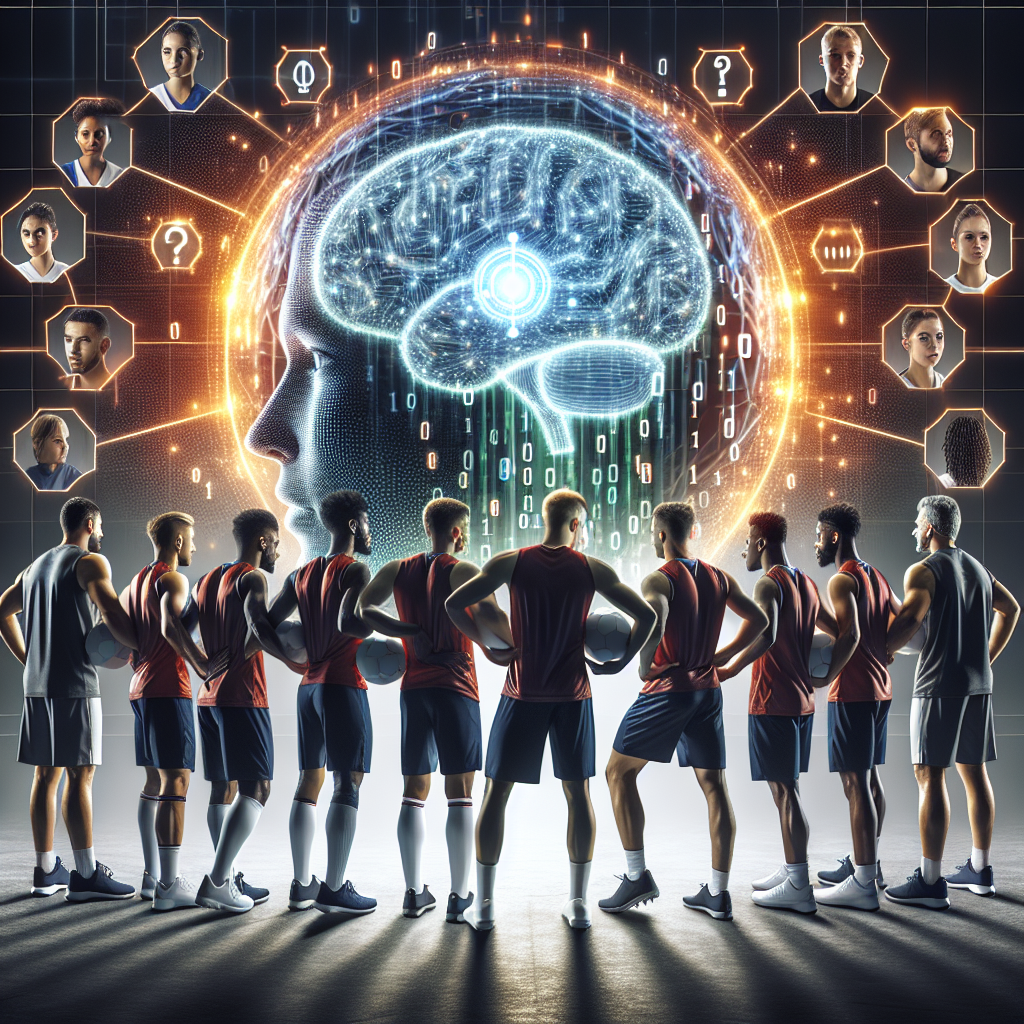In the world of sports, motivation is a key factor in determining the success of a team. Whether it’s a professional sports team or a group of recreational players, having high levels of motivation can make a significant difference in performance. With the advancements in technology, particularly in the field of artificial intelligence (AI), teams are now able to harness the power of AI to enhance motivation and drive success.
AI can be used in a variety of ways to boost motivation within sports teams. One of the most common applications is through the use of data analysis and predictive modeling. By analyzing data such as player performance, training habits, and game statistics, AI can provide valuable insights into areas where improvement is needed. This information can then be used to develop personalized training programs, set goals, and track progress over time. By seeing tangible results and improvements, players are more likely to stay motivated and continue pushing themselves to reach their full potential.
Another way AI can enhance sports team motivation is through the use of virtual reality (VR) and augmented reality (AR) technology. These immersive technologies can create realistic simulations of game situations, allowing players to practice and improve their skills in a safe and controlled environment. By providing players with the opportunity to experience high-pressure situations and receive instant feedback on their performance, AI-powered VR and AR training programs can help build confidence and motivation.
Additionally, AI can be used to optimize team communication and collaboration. By analyzing communication patterns and behaviors within the team, AI can identify areas where improvements can be made. For example, AI can suggest ways to improve team dynamics, resolve conflicts, and enhance overall team cohesion. By fostering a positive and supportive team environment, players are more likely to feel motivated and committed to achieving common goals.
Furthermore, AI can be used to personalize coaching and feedback for individual players. By analyzing player data and performance metrics, AI algorithms can provide personalized recommendations and insights tailored to each player’s unique strengths and weaknesses. This personalized approach can help players feel valued and supported, leading to increased motivation and engagement.
Overall, AI has the potential to revolutionize the way sports teams approach motivation and performance enhancement. By leveraging the power of AI technologies, teams can gain valuable insights, optimize training programs, enhance team communication, and provide personalized coaching to drive success.
FAQs:
1. How can AI help improve team motivation in sports?
AI can help improve team motivation in sports by providing valuable insights through data analysis, optimizing training programs, enhancing team communication, and providing personalized coaching for individual players.
2. What are some examples of AI applications in sports team motivation?
Examples of AI applications in sports team motivation include data analysis and predictive modeling, virtual reality and augmented reality training programs, optimizing team communication and collaboration, and personalized coaching for players.
3. How can AI personalize coaching and feedback for individual players?
AI can personalize coaching and feedback for individual players by analyzing player data and performance metrics to provide tailored recommendations and insights based on each player’s strengths and weaknesses.
4. What are the benefits of using AI to enhance sports team motivation?
The benefits of using AI to enhance sports team motivation include improved performance, increased player engagement, enhanced team cohesion, and a more personalized approach to coaching and training.
5. How can teams implement AI technologies to enhance motivation?
Teams can implement AI technologies to enhance motivation by partnering with AI technology providers, integrating AI tools into their training programs, and leveraging data analysis and predictive modeling to drive performance improvements.

